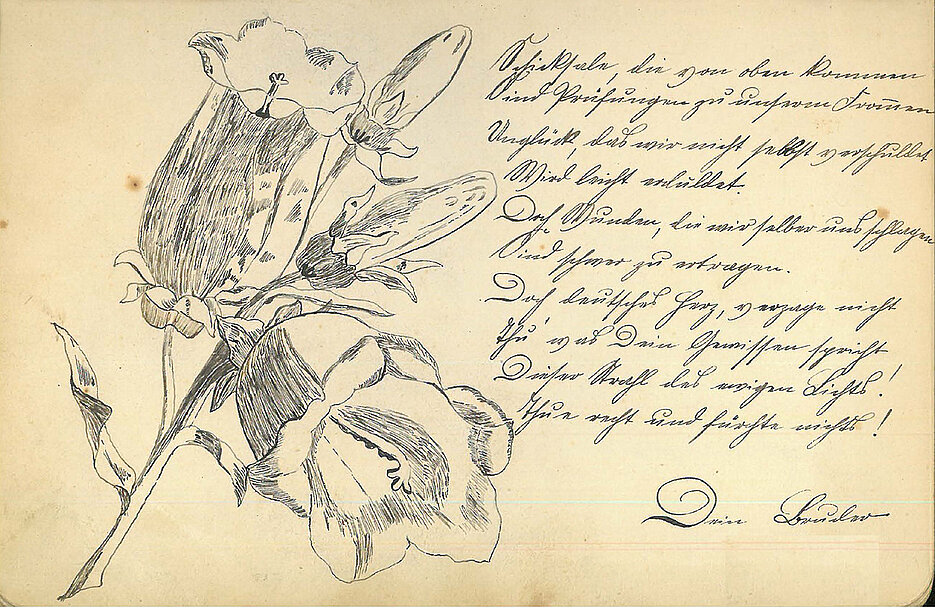Old Scripts: Citizens Read with Students
09/16/2025Learning to read the Kurrent and Sütterlin scripts: The Chair of European Ethnology/Empirical Cultural Studies invites all interested parties in and around Würzburg to take part.

Many attics and cellars in Franconia harbour real treasures. But most of their descendants can no longer read the recipes from Great Aunt Luise, their grandparents' love letters or their great-grandfather's field post letters.
Professor Michaela Fenske and Pearl-Sue Carper from the Chair of European Ethnology/Empirical Cultural Studies are therefore inviting interested citizens to learn how to read old writings together with students of cultural studies.
The digital reading course "Erlesenes Franken" will run in the winter semester 2025/26. It will take place every fortnight from 21 October on Tuesdays from 6 to 8 pm. Anyone wishing to take part can contact the professor directly at michaela.fenske@uni-wuerzburg.de. An internet-enabled computer is required to take part in the course.
Diversity in the Course Promotes Learning
This is the fifth time the chair has offered the course. The curriculum from various sources - from poetry albums to historical letters - has proved its worth, says Michaela Fenske. "The collaboration between people of different ages and backgrounds has also proved to be an excellent learning experience."
Quite a few participants acquire a taste for the course and then continue to work in the chair's mixed self-testimony group. Here, citizens and students work together to open up historical sources, such as diaries or letters, for further research.
Focus in Teaching
Historical cultural analysis is one of the focal points of teaching at the Würzburg Chair of European Ethnology. Students learn how to read historical sources, among other things using the constantly growing collection of Lower Franconian self-reports from the 18th, 19th and 20th centuries. They thus make an important contribution to research into Franconian everyday life in the past. At the same time, they acquire important tools for their everyday work in museums, archives or cultural offices.







